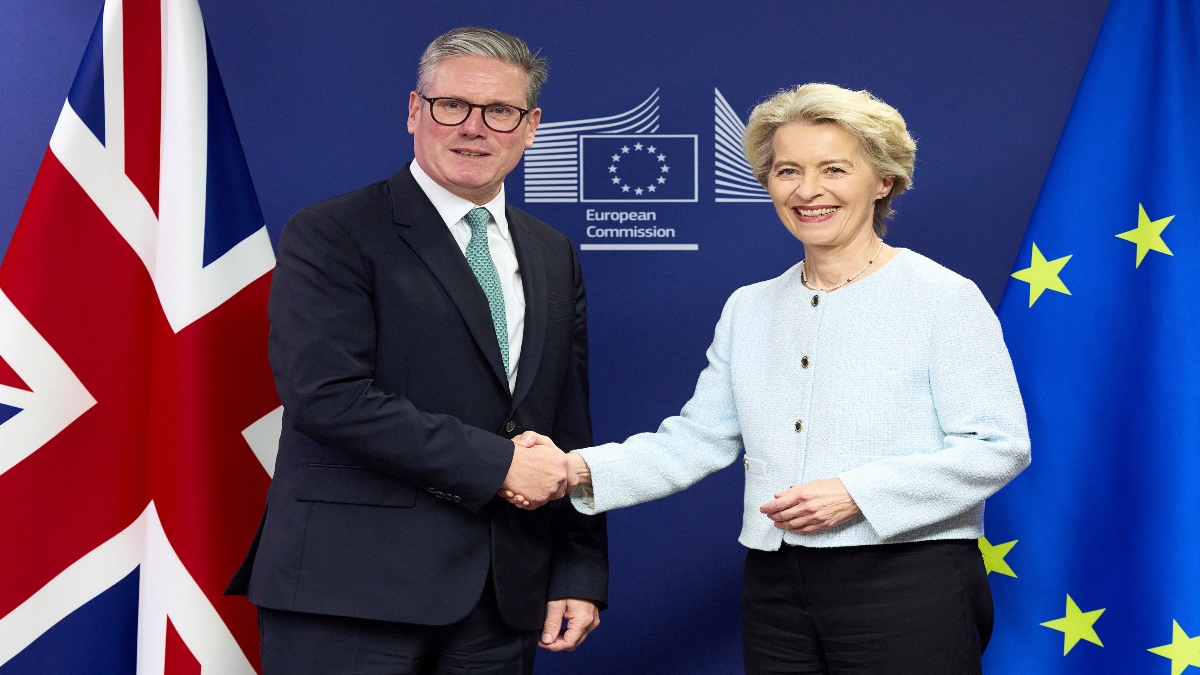Hopes by the British government to join a major European trade pact so as to ease the UK’s post-Brexit supply chain issues are reportedly being blocked by the European Union.
The UK last week announced it was exploring accession to the Pan-Euro-Mediterranean (PEM) convention, citing potential benefits such as reduced paperwork and greater sourcing flexibility for British goods exporters.
However, according to a report by Financial Times, four people familiar with discussions said the European Commission has privately told London it will not support the UK’s entry at this time.
The Commission’s decision has frustrated British officials, who view joining PEM as a technical and pragmatic step to support struggling exporters. It also marks the first sign of tension following a reset in UK-EU relations, announced at a 18 May summit where both sides pledged improved cooperation in energy and agrifood trade.
The PEM convention enables countries to build manufacturing supply chains across participating nations and still qualify for low-tariff access to markets under free trade deals. Though not exclusively an EU initiative, joining would require revisiting the EU-UK Trade and Cooperation Agreement, effectively giving Brussels veto power.
“For it to be meaningful for the UK, the EU would need to agree to incorporate the PEM rules of origin into the EU-UK Trade and Cooperation Agreement. This gives the EU de facto blocking powers,” said Sam Lowe, trade lead at consultancy Flint Global.
While Brussels was previously open to the idea, officials now argue UK membership could risk products gaining low-tariff access unfairly, undermining the bloc’s trade defences. Trade groups such as the British Chambers of Commerce had supported the UK bid.
Impact Shorts
More ShortsSir Keir Starmer’s government has ruled out rejoining the EU single market or forming a new customs union but views PEM accession as a useful interim measure to aid manufacturers and exporters.
David Henig, a former UK trade negotiator now at the ECIPE think tank, said the EU’s reluctance reflected ongoing political sensitivities.
“The EU isn’t united on the importance of the UK reset and issues like PEM can easily be caught up in this even though technically straightforward,” Henig said. “The UK government is going to have to work hard in London and Brussels to build momentum.”
PEM was considered in 2023 as a potential solution to a dispute over post-Brexit tariffs on electric vehicles. EU trade commissioner Maroš Šefčovič in January said UK participation in PEM was something the bloc “could consider,” but the Commission now prefers to adhere strictly to the commitments agreed in May.
Separately, tensions remain over the Windsor framework agreement for Northern Ireland. The final phase of that deal came into force on 1 July, requiring major British retailers to label more than 1,000 products “not for EU” and subjecting 400 more to full customs checks.
M&S Chief Executive Stuart Machin called the changes “bureaucratic madness” and urged quick progress on an EU-UK veterinary agreement, which would reduce checks on agrifood shipments between Great Britain and Northern Ireland.
“The promised EU-UK veterinary agreement can’t come soon enough,” Machin said.
However, EU officials reiterated that such an agreement would only be considered once the Windsor framework is fully implemented. They have raised concerns that many UK supermarket chains are not in full compliance.
European relations minister Nick Thomas-Symonds reportedly met retail executives in Whitehall last Thursday to stress the importance of meeting the agreement’s conditions to avoid jeopardising further negotiations.
The Commission declined to comment. The UK Cabinet Office said the government remained committed to the Windsor framework and would continue engaging with PEM members, including the EU.
“We aren’t going to provide a running commentary on our ongoing discussions with the EU,” the Cabinet Office said.


)

)
)
)
)
)
)
)
)



